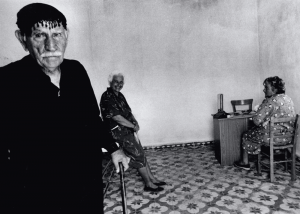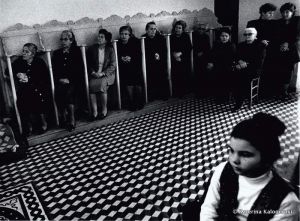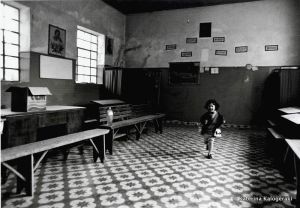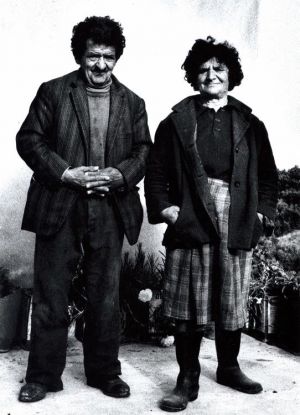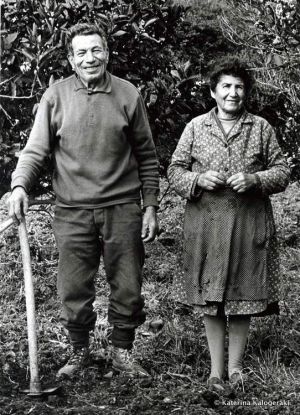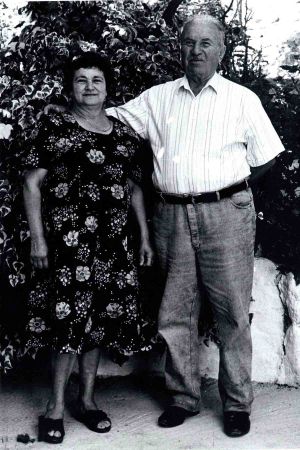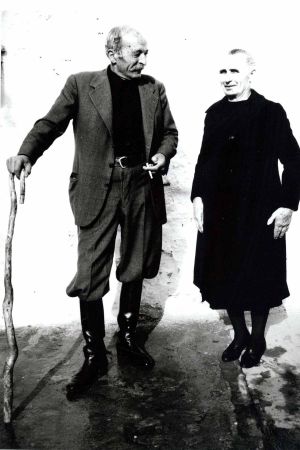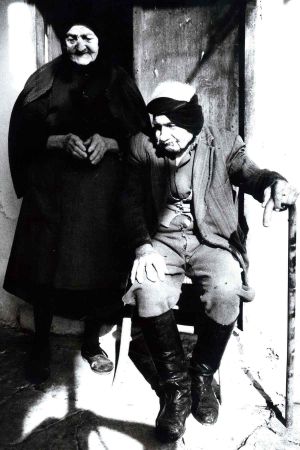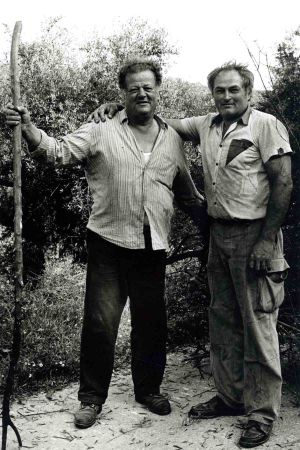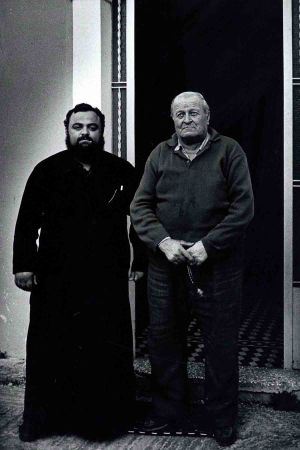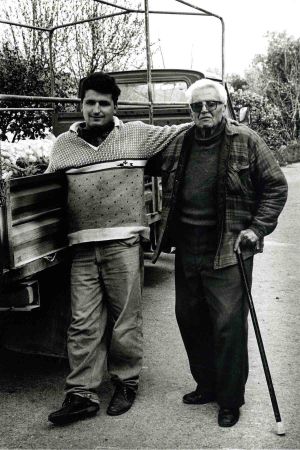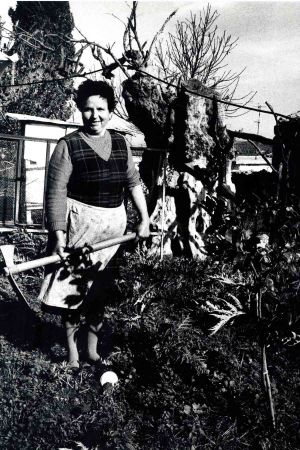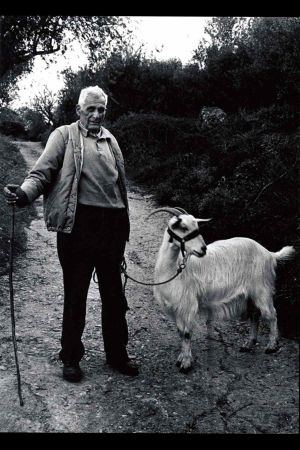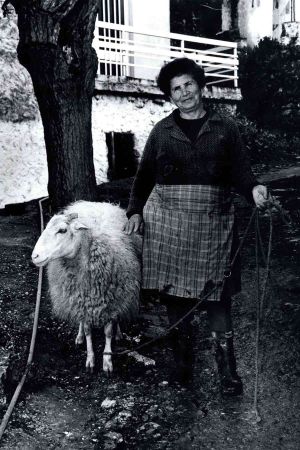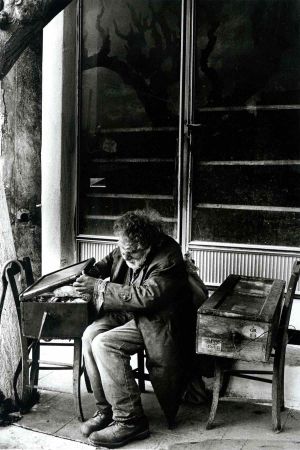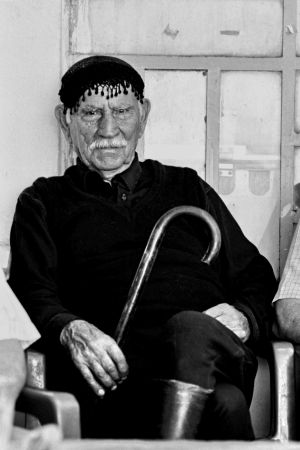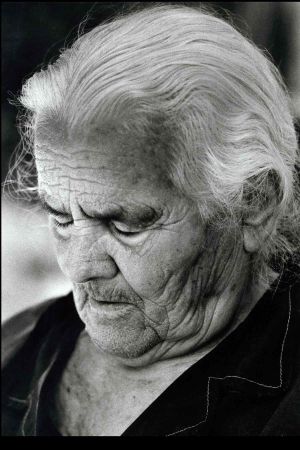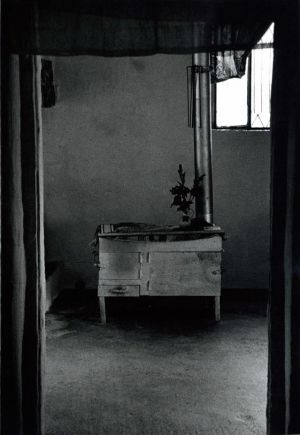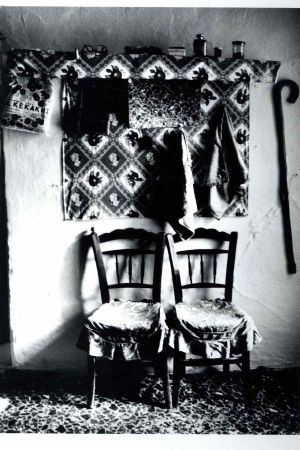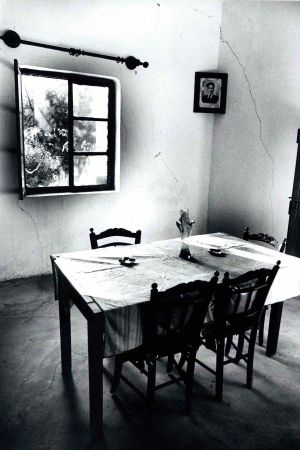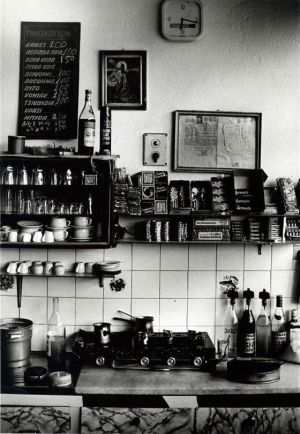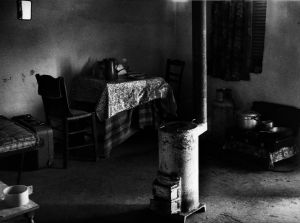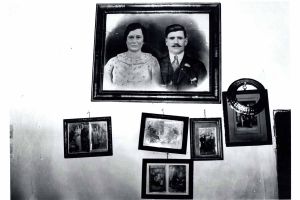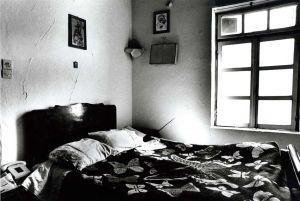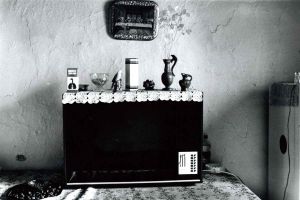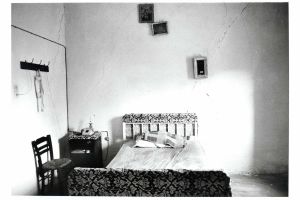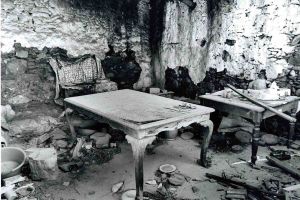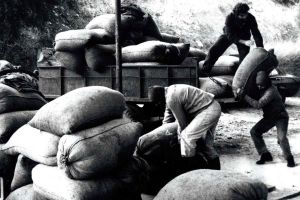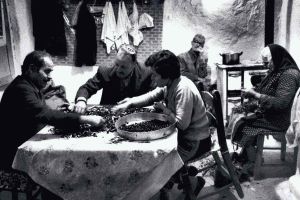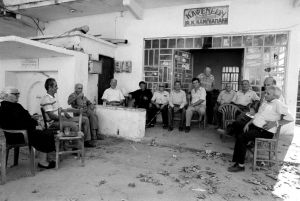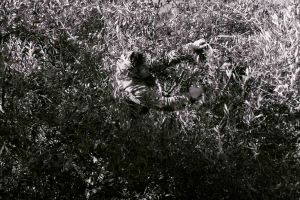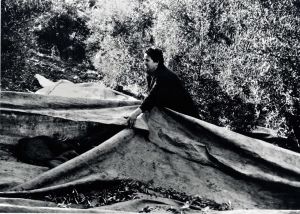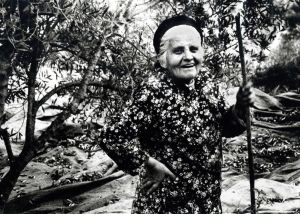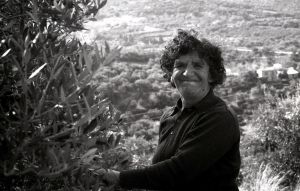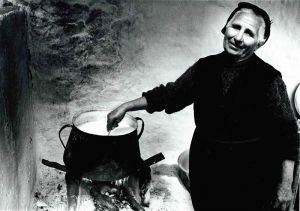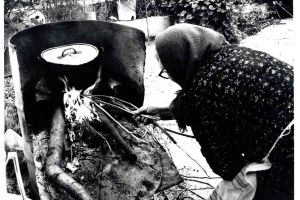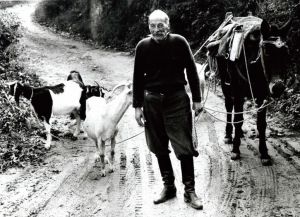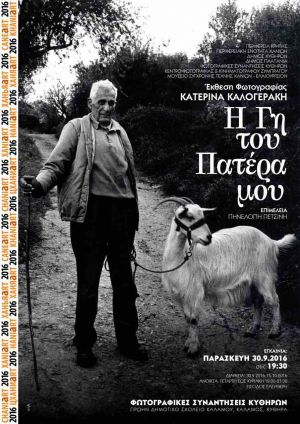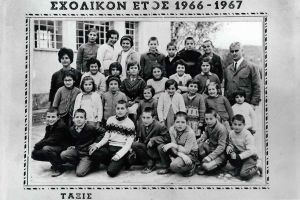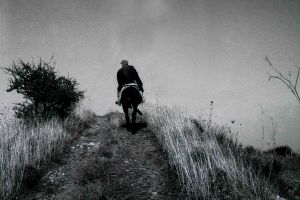Made with the same spirit of enquiry which characterised Larry Sultan’s Pictures from Home and Paul Reas’s Portrait of an Invisible Man, Katerina’s work seems to confirm the view that documentary photography provides important access to both facts and feelings. Despite its straight documentary style, this work is essentially a quest for the author’s identity; it’s a document of her own subjective experience which, at the same time, is able to criticise both hegemonic representations and social ideologies. ‘My Father’s Land’ aimed above all to document the experience of returning home.
After living in England for several formative years in which she had distanced herself from the morals and values of a country that has little in common with Western societies, Katerina returns to Crete in order to document and understand the land and the people, and through these, her own identity. The decision to use a traditional mode of representation –a very direct documentary approach which touches social and gender issues- was a conscious one. This, however, is social document devoid of any romanticism, a document which is both a personal interpretation of one’s own family and homeland, while allowing them to investigate the way in which issues of gender, nationality or locality influence the formation of subjectivities and identities.
Often by juxtaposing photographs with texts, Katerina deals with her family’s demands and expectations and the degree to which she still “belongs” to this land: the portrait of an elderly aunt is juxtaposed by her rigorous rebuke when she dared to enter alone in the male- dominated area of the cafeneion ignoring the cultural codes of the village; a typical family portrait is followed by her mother’s lecture that ‘The ultimate purpose in one’s person’s life is to get married and have children.’
‘My Father’s Land’ is a project which does not set out to be an objective document of Greek rural life but rather a document of the photographer’s own subjective experience. It presents the feeling of liberation from the narrow bonds of village mentality and later the retrospective view via an artistic project on one’s origin.
Ultimatelly, it recalls John Berger’s definition of the artist as someone who tries conserve something of the presence, but at the same time he/she tries to put lived experience into his/her art in order to get conscious about his/her own position in the world.
Dr Penelope Petsini
